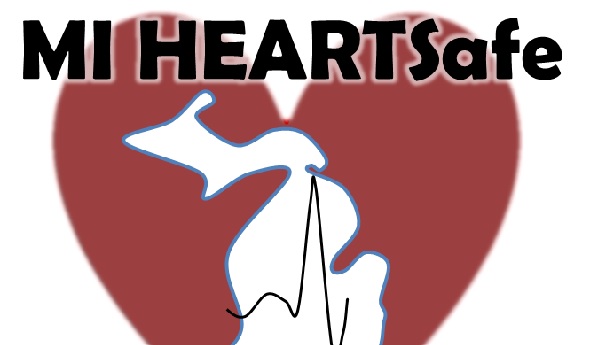
PRIVIT to Assist in Health History Effort
May 16, 2016
By Geoff Kimmerly
Second Half editor
The Michigan High School Athletic Association has announced an agreement with PRIVIT to streamline the process for the management and collection of physical health history and consent forms required for participation in high school sports. The MHSAA has designated PRIVIT’s solution, called Privit Profile, as the electronic alternative to paper forms beginning with the 2016-17 school year.
Migrating the paper process to Privit Profile will help high schools better facilitate the process of collecting personal health history information from athletes, and it will save time and costs associated with managing the paper process.
Privit Profile includes the MHSAA’s health history questionnaire and is built on PRIVIT’s patented, secure, and HIPAA (Health Insurance Portability and Accountability Act) compliant technology. The additional MHSAA forms also are included in the implementation and provide MHSAA member schools the flexibility to further tailor Privit Profile to their process. Taking the paper-based process and transitioning it online will provide athletic trainers and coaches more time to focus on Michigan’s student-athletes.
Within Privit Profile, parents of student-athletes easily complete the medical history questionnaire and take printed copies to the student-athlete’s physical exam. In subsequent years, parents only will have to update the information in Privit Profile, as opposed to completing all of the paper-based forms again.
“It has become necessary for increased detail in the requirements to participate in school sports,” said MHSAA Executive Director John E. “Jack” Roberts. “We desire more comprehensive health histories for students and more education of parents and students regarding the risks of participation, as well as the intangible rewards of competing in educational athletics. Streamlining for collection and storage of documents is a priority.”
Gathering more detailed Health Histories – including an upgrade of the previous pre-participation physical form – was the first focus of the ongoing MHSAA 4 H’s of Health and Safety effort taken up before the start of the 2009-10 school year (the other three H’s stand for Heads, Heat and Hearts).
The MHSAA will begin rolling out Privit Profile throughout local high school athletic departments beginning this month. Use of Privit Profile by schools is voluntary.
“As the importance of pre-screening athletes continues to sweep the nation, more and more state high school athletic associations are adopting Privit Profile to better manage student-athlete health information,” said Jeffrey Sopp, CEO of PRIVIT. “We are excited to be partnering with MHSAA and to be able to provide Privit Profile to schools and participants in Michigan for the 2016-17 school year. We’re looking forward to helping MHSAA member high schools and improving a manual process for years to come.”
PRIVIT® was established in 2009 and provides cloud-based patented technology for the collection, distribution, and analysis of personal health information. Considered a world-class leader in electronic pre-participation evaluations, Privit Products offer clients a more secure and standard method for acquiring and sharing the personal health information required for participation in organized sports and activities. With offices in London, Ontario and Columbus, Ohio, PRIVIT® fosters lasting relationships with physicians, athletic trainers, sports medicine organizations and international sports teams. To learn more about PRIVIT® and its Products, visit www.privit.com.

105 Schools Recognized As HEARTSafe
October 19, 2016
The Michigan Departments of Health and Human Services (MDHHS), and Education (MDE); American Heart Association (AHA); Michigan High School Athletic Association (MHSAA); and Michigan Alliance for Prevention of Sudden Cardiac Death of the Young (MAP-SCDY) have awarded 105 schools in Michigan with the MI HEARTSafe School designation which recognizes schools that are prepared to respond to cardiac emergencies.
“Many sudden cardiac deaths that claim the lives of children and young adults could be prevented through screening, detection, and treatment,” said Dr. Eden Wells, chief medical executive of MDHHS. “Appropriate medical response within three to five minutes is crucial for increasing the chance of survival, which is why I’m pleased to see so many of our schools taking vital measures to prepare and address this health issue.”
In order for a school to receive a MI HEARTSafe School designation, it must perform at least one cardiac emergency response drill per year, have a written medical emergency response plan and team, have current CPR/AED certification of at least 10 percent of staff, 100 percent of head varsity coaches, and 50 percent of P.E. staff; have accessible, properly maintained and inspected AEDs with signs identifying their location; and ensure pre-participation sports screening of all student athletes using the current physical and history form endorsed by the Michigan High School Athletic Association.
“We are so proud to support Michigan’s HEARTSafe schools,” said State Superintendent Brian Whiston. “Ensuring schools are prepared for sudden cardiac emergencies through planning, training, and life-saving AEDs is an important part of having safer learning environments for students, staff, and the community.”
Between 2003 and 2012 in Michigan, there were 2,590 young individuals between 1 and 39 years of age who died of sudden cardiac death. Of those, 214 were between 5 and 19 years of age. This is the third year of the MI HEARTSafe Schools program in Michigan. In the first two years of the initiative, 162 schools were previously designated as MI HEARTSafe Schools and prepared to help reduce the number of sudden cardiac deaths in our youth.
Public Act 12 of 2014 requires all schools (grades kindergarten to 12) to have a cardiac emergency response plan in place. This MI HEARTSafe School designation recognizes the 267 school buildings that have taken steps above and beyond to prepare to respond in the event of a cardiac emergency, and is awarded for a period of three years. Click for the list of designated schools.
Schools that meet all of the requirements will be able to apply for the MI HEARTSafe School designation each year. Click for information about the MI HEARTSafe Schools program.

